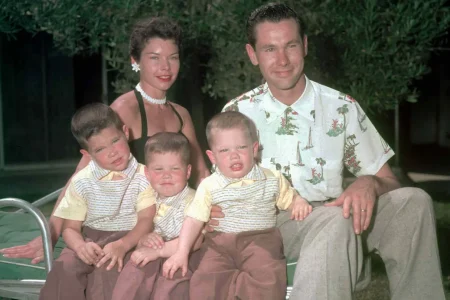The unexpected death of One Direction’s Liam Payne last October has left his estate in the hands of his ex-partner, Cheryl Tweedy. Their son, Bear, is expected to inherit the majority of the estate, as Liam did not leave a will. Music lawyer Richard Bray is overseeing the administration of the estate.
Although Liam’s estate seems destined for his son, questions have emerged about the financial rights of Kate Cassidy, Liam’s girlfriend at the time of his passing. Kate, who had reportedly been receiving a monthly allowance of £20,000 from Liam and had access to his credit cards, may attempt to claim a portion of his assets. However, legal experts believe this could be a difficult battle.
Kate Cassidy, despite having no automatic legal rights to Liam’s estate, might seek a claim for “reasonable financial provision.” This claim could be based on her financial dependency on Liam during their relationship, even though they were not engaged.
Reports suggest that three key pieces of evidence could support Kate’s case. One is a note allegedly written by Liam, in which he wrote about their potential marriage. The number ‘444’ in the note is often associated with spiritual reassurance, which some might interpret as a sign of Liam’s future commitment. Additionally, statements from mutual friends, including Rogelio ‘Roger’ Nores, could play a role in Kate’s legal arguments.
However, solicitor John Lambe, a partner at Forbes Solicitors and expert in contentious estate claims, is not optimistic about Kate’s chances of success. Lambe explains that courts are generally skeptical of informal statements regarding future intentions, such as the note allegedly written by Liam or personal conversations about marriage. He points out that such informal statements lack the legal force to support a claim on the estate. The court would likely be looking for more concrete evidence, such as documented proof of an engagement or legal commitment.
Even though the note and conversations may suggest a future together, Lambe notes that they would not establish a legal or financial obligation in the eyes of the court. The relationship would need to be recognized as something akin to a common-law partnership, but since they were not engaged, this could present a significant challenge for Kate.
One of the main elements of Kate’s potential claim would be proving financial dependency on Liam. While bank statements may show monthly deposits into her account, Lambe suggests that this could be viewed as generosity from Liam rather than a legal obligation. To succeed in such a claim, Kate would need to demonstrate consistent and substantial financial dependence on Liam. Estate administrators and beneficiaries could argue that the financial support was simply a discretionary act rather than an obligation.
Lambe warns that bringing a claim under these circumstances would be contentious. It could take months, possibly even years, to resolve, during which time loved ones would likely be focused on processing their grief rather than dealing with a lengthy legal battle.
Despite the legal challenges, Kate Cassidy may still decide to pursue her claim, relying on the financial support she received during her relationship with Liam. However, experts agree that such a claim will face significant obstacles. For now, it remains to be seen whether Kate will move forward with legal action or choose to respect the terms of Liam’s estate, which is likely to benefit his son Bear above all else.
As this situation unfolds, it serves as a reminder of the complexities surrounding inheritance law, particularly when there are no clear legal agreements in place, such as a will or formal engagement.















